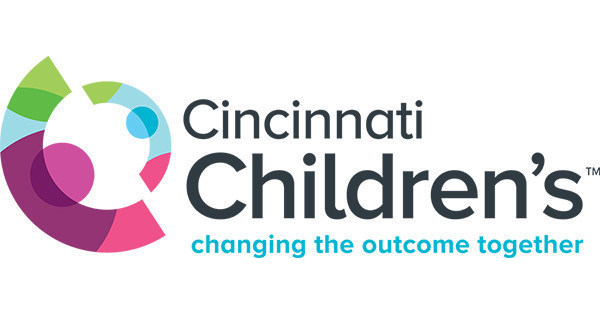-- Unprecedented data from FORTITUDE™ dose escalation cohorts for del-brax treated participants, compared to placebo, demonstrate improvement in function, strength and PROs as well as rapid and significant reduction in biomarkers --
-- Data support planned accelerated approval BLA submission in H2 2026 --
-- Data being presented at the 32nd Annual FSHD Society International Research Congress (IRC); Investor and analyst webcast event today, Monday, June 9 at 8:00 a.m. ET --
, /PRNewswire/ -- Avidity Biosciences, Inc. (Nasdaq: RNA), a biopharmaceutical company committed to delivering a new class of RNA therapeutics called Antibody Oligonucleotide Conjugates (AOCs™) to profoundly improve people's lives, today announced positive topline data from the dose escalation cohorts of the delpacibart braxlosiran (del-brax) Phase 1/2 FORTITUDE™ program in Facioscapulohumeral Muscular Dystrophy (FSHD). These data as well as research supporting KHDC1L as a novel DUX4 regulated circulating biomarker will be presented in oral and poster presentations at the 32nd Annual FSHD Society International Research Congress (IRC), being held June 12-13, 2025, in Amsterdam, the Netherlands.
Del-brax is the first investigational therapy designed to treat the underlying cause of FSHD by directly targeting the disease-causing gene, double homeobox 4 (DUX4). Currently, there are no approved therapies for the treatment of FSHD, a rare, hereditary disorder marked by life-long, relentless loss of muscle strength and function, significant pain, fatigue, and progressive disability. FSHD affects approximately 45,000 to 87,000 people in the United States and Europe.
"The positive topline del-brax results from FORTITUDE being presented at FSHD IRC this week are remarkable and consistent across multiple functional measures as well as biomarkers," said Sarah Boyce, president and chief executive officer at Avidity. "Based on these unprecedented data, we are rapidly advancing del-brax as we pursue accelerated approval and prepare to submit a BLA in the second half of 2026. We are incredibly grateful for the continued trust and support from study participants, their caregivers, investigators and their staff, which are paramount to the success of this program."
Avidity today also announced that the accelerated approval regulatory pathway in the U.S. is open for del-brax and that the company has initiated the global, confirmatory Phase 3 FORWARD™ study in FSHD.
"Del-brax data from the FORTITUDE study continue to demonstrate consistent reductions in a novel circulating biomarker across two cohorts at 12 months. I am particularly encouraged that del-brax shows favorable safety and tolerability with early and consistent trends towards benefit with del-brax compared to placebo across multiple functional and participant-reported outcome measures," said Jeffrey M. Statland, M.D., Professor of Neurology, University of Kansas Medical Center, and FORTITUDE trial investigator. "These data indicate that by directly targeting DUX4, del-brax may be able to improve the lives of patients with FSHD and potentially meaningfully control their disease. I look forward to continued evaluation of del-brax in the FORWARD Phase 3 study and remain hopeful that it is on track to become the potentially first approved drug for FSHD."
Topline Data from the Phase 1/2 FORTITUDE™ Dose Escalation Cohorts
The FORTITUDE™ clinical development program includes a randomized, placebo-controlled, double-blind, Phase 1/2 clinical trial designed to evaluate multiple doses of del-brax in participants with FSHD as well as an open-label extension study. The two dose escalation cohorts evaluated 39 participants on either 2 mg/kg or 4 mg/kg of del-brax versus placebo over a period of 12 months. In these cohorts, del-brax was given every six weeks for the first three months and then every 13 weeks thereafter.
Topline data from these cohorts for del-brax treated participants, compared to placebo, demonstrated:
- Consistent improvement of functional mobility and muscle strength as measured by 10-Meter Walk-Run test (10MWRT), Timed Up and Go (TUG) and quantitative muscle testing (QMT) as compared to placebo;
- Consistent improvement in multiple measures of quality of life as measured by patient reported outcomes and compared to placebo;
- Rapid and significant reductions in levels of KHDC1L and creatine kinase, a biomarker of muscle damage; and
- Favorable long-term safety and tolerability with most adverse events (AEs) mild or moderate, with no related serious or severe adverse events and no discontinuations.
Topline data from the ongoing, fully enrolled del-brax Phase 1/2 FORTITUDE biomarker cohort are anticipated in Q2 2026. The primary endpoint of the FORTITUDE biomarker cohort is reduction of KHDC1L, a novel DUX4-regulated circulating biomarker. Avidity collaborated with Stephen Tapscott, M.D., Ph.D., Professor of Human Biology and Clinical Research at the Fred Hutchinson Cancer Center around the identification of the KHDC1L circulating biomarker in people living with FSHD.
Video Webcast Information
The Company is hosting an investor and analyst event today, June 9, 2025 at 8:00 a.m. ET. Avidity management will be joined by Jeffrey M. Statland, M.D., Professor of Neurology, University of Kansas Medical Center, and FORTITUDE™ trial investigator, to discuss these updates relating to del-brax in FSHD. The virtual event will be available via a live video webcast and can be accessed here or from the "Events and Presentations" page in the "Investors" section of Avidity's website. A replay of the webcast will be archived on Avidity's website following the event.
About the Phase 1/2 FORTITUDE™ and Phase 2 FORTITUDE-OLE™ trials
The FORTITUDE™ trial is a randomized, placebo-controlled, double-blind, Phase 1/2 clinical trial designed to evaluate single and multiple doses of delpacibart braxlosiran or del-brax in 90 participants with facioscapulohumeral muscular dystrophy (FSHD). FORTITUDE is evaluating the safety, tolerability, pharmacokinetics, and pharmacodynamics of del-brax administered intravenously. Activity of del-brax is being assessed using key biomarkers, including DUX4-regulated muscle and circulating biomarkers and magnetic resonance imaging (MRI) measures of muscle volume and composition. Though the Phase 1/2 trial is not statistically powered to assess functional benefit, it explores the clinical activity of del-brax including measures of functional mobility and muscle strength as well as patient reported outcomes and quality of life measures.
The trial has a total of three dose cohorts. The first two dose escalation cohorts evaluated 2 mg/kg or 4 mg/kg of del-brax versus placebo and were designed to assess safety as well as inform the dose and dose regimen of del-brax for additional studies. Avidity has completed enrollment in the dose escalation cohorts and identified 2 mg/kg every six weeks of del-brax as the dose for future clinical trials.
The third, ongoing biomarker cohort in the FORTITUDE trial assesses the impact of del-brax 2 mg/kg every six weeks versus placebo for 12 months in people living with FSHD, ages 16-70. The primary endpoint of the biomarker cohort is reduction of KHDC1L, a novel DUX4-regulated circulating biomarker. Enrollment in the biomarker cohort is complete and blinded treatment is ongoing.
Participants who complete FORTITUDE have the option to enroll in the ongoing FORTITUDE open-label extension (FORTITUDE-OLE™) study evaluating the long-term safety and tolerability of del-brax in participants living with FSHD. For more information about the FORTITUDE trial, visit the FORTITUDE study website or visit http://www.clinicaltrials.gov and search for NCT05747924. For more information on the FORTITUDE-OLE study click here or visit http://www.clinicaltrials.gov and search for NCT06547216.
About Del-brax
Del-brax is designed to treat the underlying cause of FSHD, which is caused by the abnormal expression of a gene called double homeobox 4 or DUX4. The abnormal expression of DUX4 protein leads to changes in gene expression in muscle cells that are associated with the life-long, progressive loss of muscle function in patients with FSHD. Del-brax aims to reduce the expression of DUX4 mRNA and DUX4 protein in muscles in people with FSHD. Del-brax consists of a proprietary monoclonal antibody that binds to the transferrin receptor 1 (TfR1) conjugated with a siRNA targeting DUX4 mRNA. Del-brax is currently in registrational-stage studies including FORTITUDE biomarker cohort and the global, confirmatory, Phase 3 FORWARD trial in individuals with FSHD. The U.S. Food and Drug Administration (FDA) and the European Medicines Agency (EMA) have granted Orphan designation for del-brax and the FDA has granted del-brax Fast Track designation.
About Facioscapulohumeral Muscular Dystrophy (FSHD)
Facioscapulohumeral muscular dystrophy (FSHD) is a rare, progressive, and variable hereditary muscle-weakening condition marked by life-long, relentless loss of muscle function, significant pain, fatigue, and progressive disability. It is characterized by progressive and often asymmetric skeletal muscle loss that initially causes weakness in muscles in the face, shoulders, arms and trunk and progresses to weakness in muscles in the lower body. FSHD is an autosomal dominant disease caused by the aberrant expression of the DUX4 (double homeobox 4) gene in the skeletal muscle, which activates genes that are toxic to muscle cells and leads to a series of downstream events that result in skeletal muscle wasting and compromised muscle function. Skeletal muscle weakness results in physical limitations throughout the whole body, including an inability to lift arms for more than a few seconds, loss of ability to show facial expressions and serious speech impediments. These symptoms cause many people affected by FSHD to become dependent on the use of a wheelchair for mobility. Currently, there are no approved treatments for people living with FSHD.
About Avidity
Avidity Biosciences, Inc.'s mission is to profoundly improve people's lives by delivering a new class of RNA therapeutics - Antibody Oligonucleotide Conjugates (AOCs™). Avidity is revolutionizing the field of RNA with its proprietary AOCs, which are designed to combine the specificity of monoclonal antibodies with the precision of oligonucleotide therapies to address targets and diseases previously unreachable with existing RNA therapies. Utilizing its proprietary AOC platform, Avidity demonstrated the first-ever successful targeted delivery of RNA into muscle and is leading the field with clinical development programs for three rare neuromuscular diseases: myotonic dystrophy type 1 (DM1), Duchenne muscular dystrophy (DMD) and facioscapulohumeral muscular dystrophy (FSHD). Avidity is also advancing two wholly-owned precision cardiology development candidates addressing rare genetic cardiomyopathies. In addition, Avidity is broadening the reach of AOCs with its advancing and expanding pipeline including programs in cardiology and immunology through key partnerships. Avidity is headquartered in San Diego, CA. For more information about our AOC platform, clinical development pipeline and people, please visit www.aviditybiosciences.com and engage with us on LinkedIn and X.
Forward-Looking Statements
Avidity cautions readers that statements contained in this press release regarding matters that are not historical facts are forward-looking statements. These statements are based on the company's current beliefs and expectations. Such forward-looking statements include, but are not limited to, statements regarding: Avidity's plans to file a BLA for accelerated approval of del-brax and the timing thereof; the potential for del-brax to achieve accelerated and full approval from the FDA and the timing thereof; the status of accelerated approval as a regulatory pathway for del-brax; biomarker selection and data from the study of del-brax; topline data from the biomarker cohort of the FORTITUDE™ trial and the timing thereof; Avidity's plans to pursue full, global approval for del-brax; the potential for del-brax to improve the lives of people with FSHD; the status of the FORTITUDE trial and the cohorts therein, and the FORWARD™ trial, including without limitation progress, initiation, enrollment, design, goals and dosage levels and frequencies.
The inclusion of forward-looking statements should not be regarded as a representation by Avidity that any of these plans will be achieved. Actual results may differ from those set forth in this press release due to the risks and uncertainties inherent in Avidity's business and beyond its control, including, without limitation: the data and results produced from the FORTITUDE trial as of the most recent cutoff dates may not be indicative of final results, may not support BLA submission or accelerated approval, may not be satisfactory to the FDA and other regulators, and new analyses of existing data and results may produce different conclusions than established as of the date hereof; data delivered to the FDA may not support accelerated approval pathways or BLA submissions and may not be satisfactory to the FDA, including as a result of our inability to establish that a novel biomarker may serve as a surrogate endpoint reasonably likely to predict a clinical benefit; even if approved, Avidity may not be able to execute any successful product launches; unexpected adverse side effects to, or inadequate efficacy of, del-brax that may delay or limit its development, regulatory approval and/or commercialization; later developments with the FDA and other global regulators that could be inconsistent with the feedback received to date; Avidity's approach to the discovery and development of product candidates based on its AOC™ platform is unproven and may not produce any products of commercial value; potential delays in the commencement, enrollment, data readouts and completion of clinical trials; Avidity's dependence on third parties in connection with clinical testing and product manufacturing; legislative, judicial and regulatory developments in the United States and foreign countries; Avidity could exhaust its available capital resources sooner than it currently expects; and other risks described in Avidity's Annual Report on Form 10-K for the fiscal year ended December 31, 2024 and subsequent filings with the SEC. Avidity cautions readers not to place undue reliance on these forward-looking statements, which speak only as of the date hereof, and the company undertakes no obligation to update such statements to reflect events that occur or circumstances that arise after the date hereof. All forward-looking statements are qualified in their entirety by this cautionary statement, which is made under the safe harbor provisions of the Private Securities Litigation Reform Act of 1995.
Investor Contact:
Kat Lange
(619) 837-5014
[email protected]
Media Contact:
Kristina Coppola
(619) 837-5016
[email protected]
SOURCE Avidity Biosciences, Inc.

WANT YOUR COMPANY'S NEWS FEATURED ON PRNEWSWIRE.COM?
![]()
440k+
Newsrooms &
Influencers
![]()
9k+
Digital Media
Outlets
![]()
270k+
Journalists
Opted In
.png)
 German (DE)
German (DE)  English (US)
English (US)  Spanish (ES)
Spanish (ES)  French (FR)
French (FR)  Hindi (IN)
Hindi (IN)  Italian (IT)
Italian (IT)  Russian (RU)
Russian (RU)  4 hours ago
2
4 hours ago
2








Comments